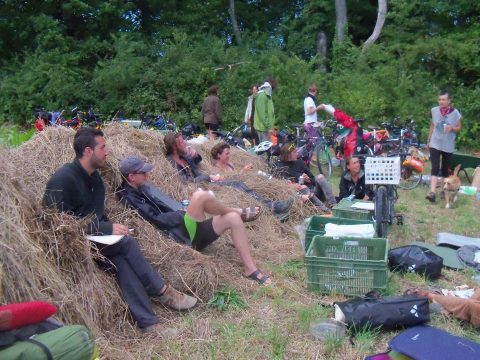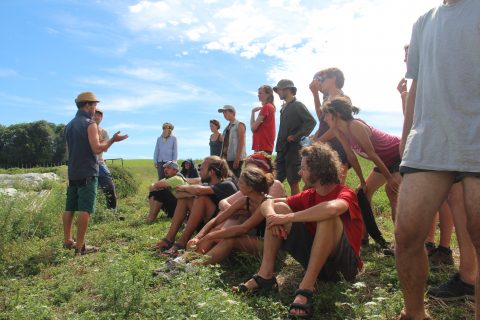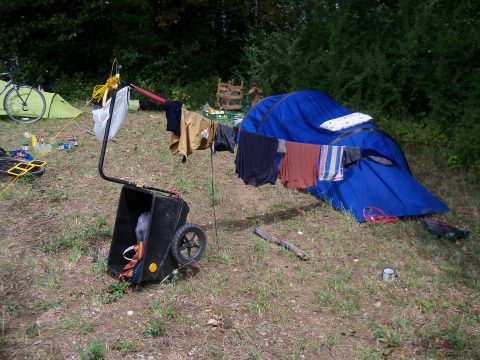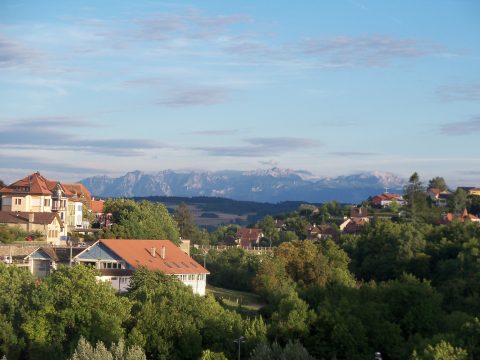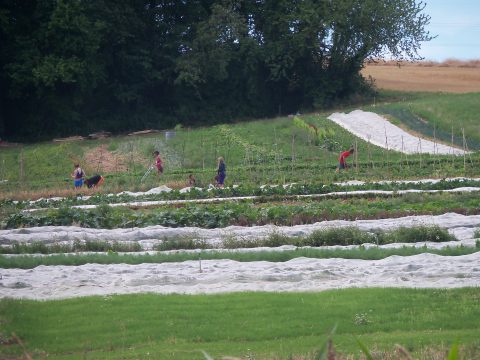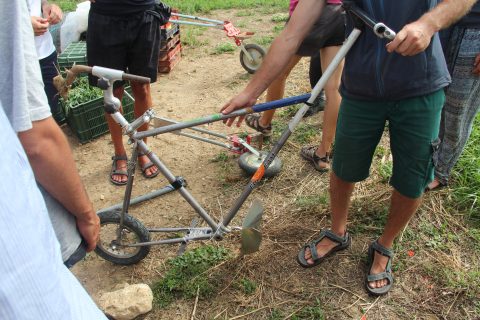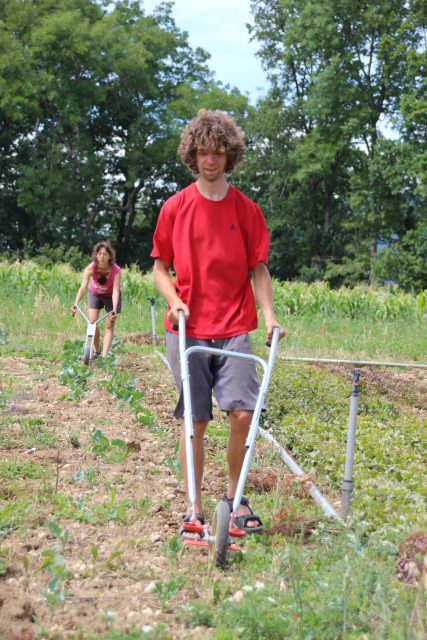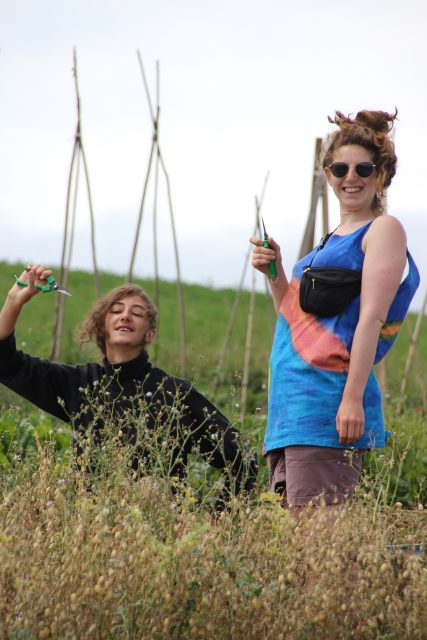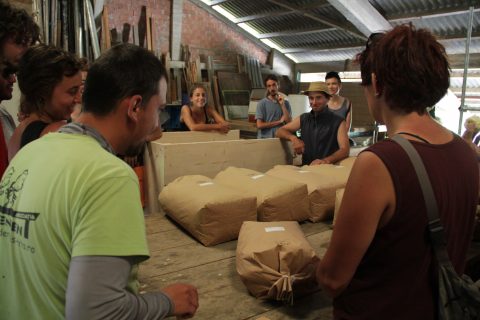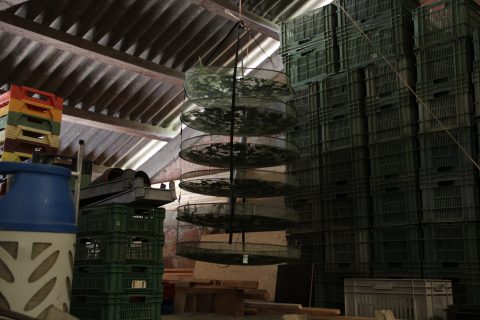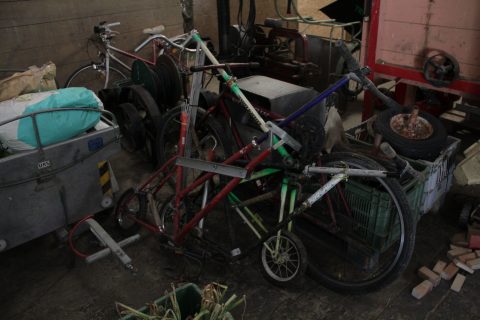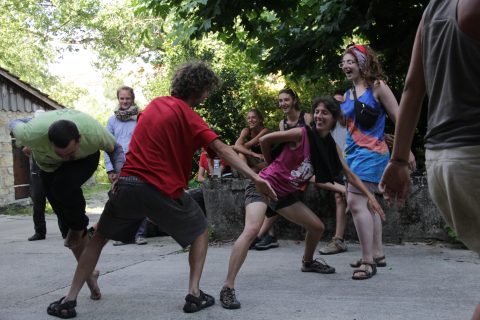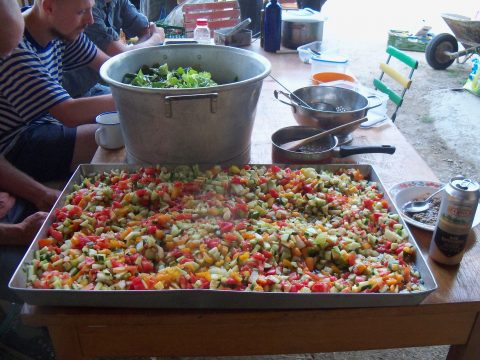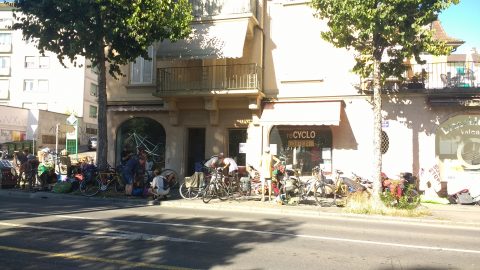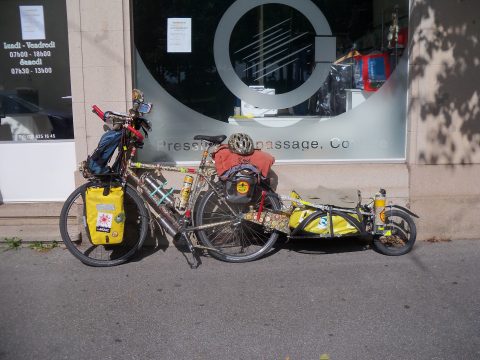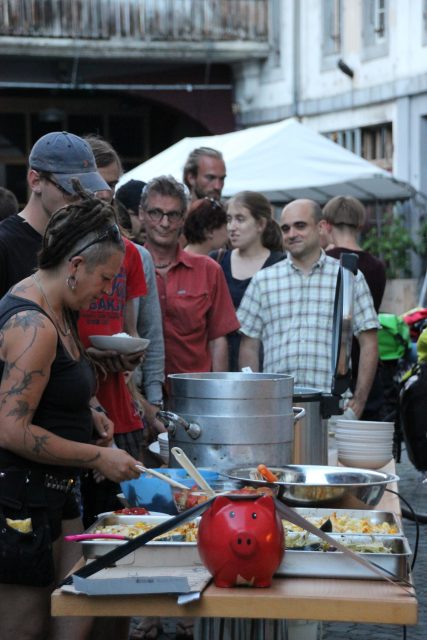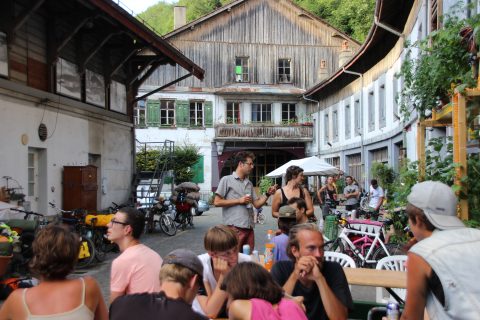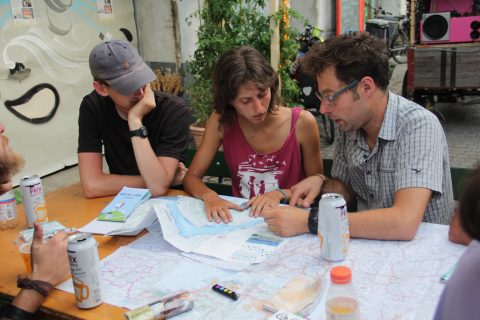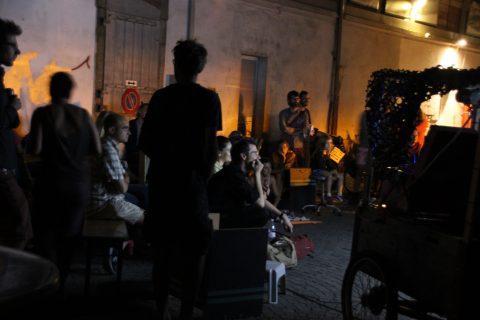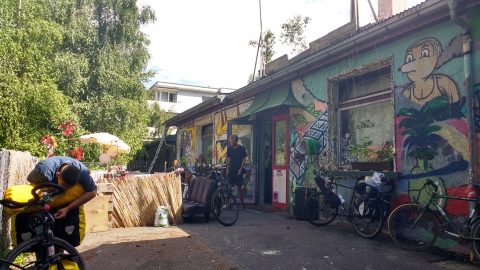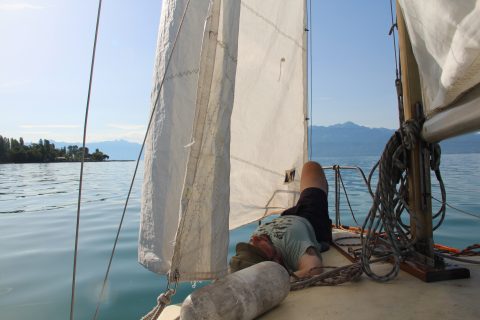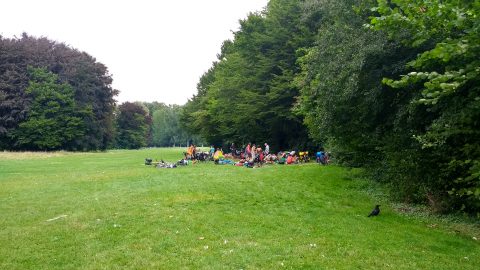On Thursday July 27, we arrived in Orbe, a small town about 30 km north of Lausanne in Switzerland. We were there to visit a new collective farm, which some of us got to know on the Reclaim the Fields meeting in Freiburg this spring.
The farm is called La Ferme du Joran. The Joran is the name of a strong and unpredictable wind from the north-west that is very specific to this geographical location.
Our sleeping place was on a field on top of a hill just outside of the town.
We arrived quite late and got an introduction to the place. While waiting for the vegetables to cook, a spontaneous drumming improvisation on the kitchen equipment developed:
The next morning we helped weeding and harvesting some vegetables. Some of the tools they use were made from old bicycles. The inspiration for this came from l’Atelier Paysan, a French collective of engineers that is designing agricultural tools and machines that can be easily self-built.
The farm exists for less than a year now. It is a small collective of people, some professional farmers and some others with no previous farming experience but a background in the squatting movement of Lausanne. They have a large farm house and 7000 m² of land, which they split into 7 parts on which they grow the vegetables using a rotation system. Among many different types of vegetables, they also grow corn, wheat and soya, and they even make their own tofu. The farm is organised as a CSA, so a number of house holds from the region are paying a regular fixed price and receive a delivery of however many vegetables are available every week.
The collective had a lot of trouble finding some farmland and had been searching for several years. In Switzerland there are some laws that try to prevent big companies like Coop and Migros buying up all the farm land. Only private people, not companies, can own farm land, and only if they are acknowledged farmers. This not only makes it hard to operate a farm collectively, but it is also makes it almost impossible for people who don’t come from farming families to become farmers, as to get some farmland, you need to be a farmer, but to be acknowledged as a farmer, you need to own some farmland. Also, to keep the land, the owner needs to prove that the farm is their main source of income, which makes the collective process complicated and also makes it difficult to experiment.
The second day we got an introduction to the farm house (which was a bit away from our camp) and had a big dinner together with our hosts.
On the third day, we cycled together with our hosts across the hills to Lausanne, where some of us spent the afternoon fixing their bikes in the bike kitchen and going for a swim in the free public swimming pool across the road. Later we moved to a new self-organised collective workshop space where a public dinner and party happened and a movie about bike messengers in Lausanne was screened.
Someone from the bike kitchen had a cool construction on his bike, perfect for Critical Masses. There was a third brake lever, connected with a self-built combination of an old inner tube and a bike bell. When the break lever was pulled, the bell would ring as long as the bike was moving:
We split up for the night and slept in a lot of different places. Some people just slept in the place where the party happened, some moved to a squat, some wild-camped on the side of the lake, and some even took a sailing boat owned by someone from the bike kitchen for a night ride and slept in the middle of the lake.






